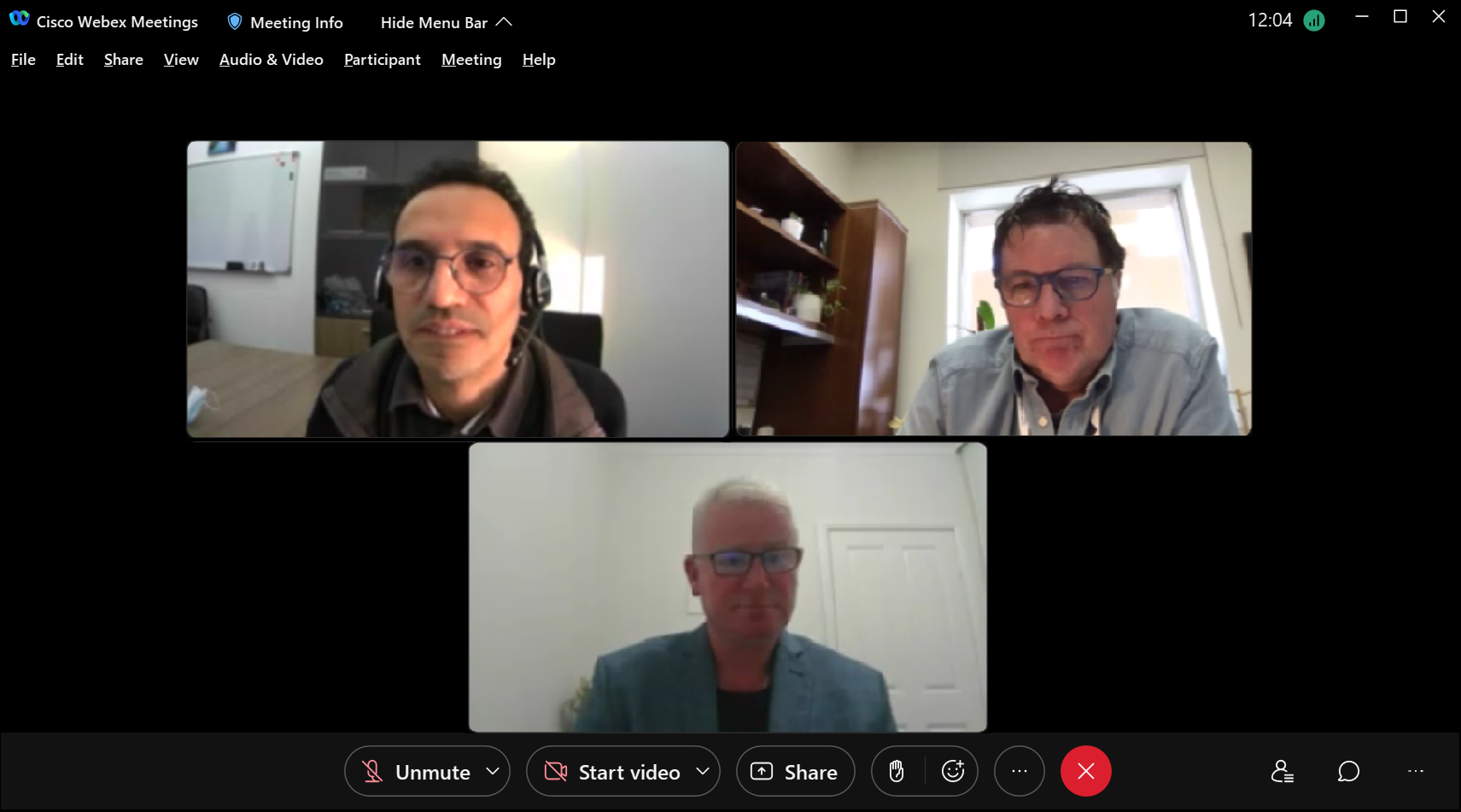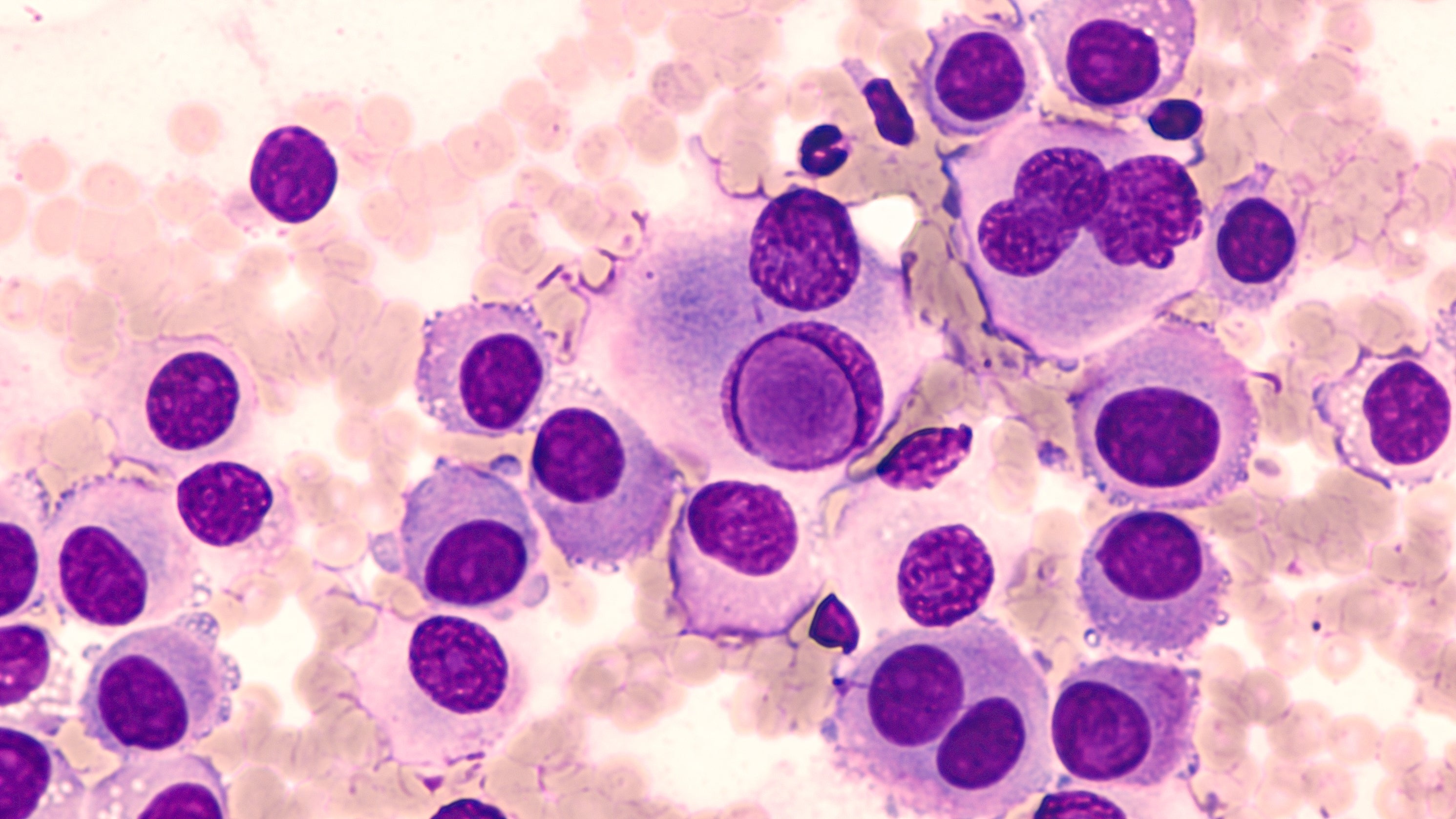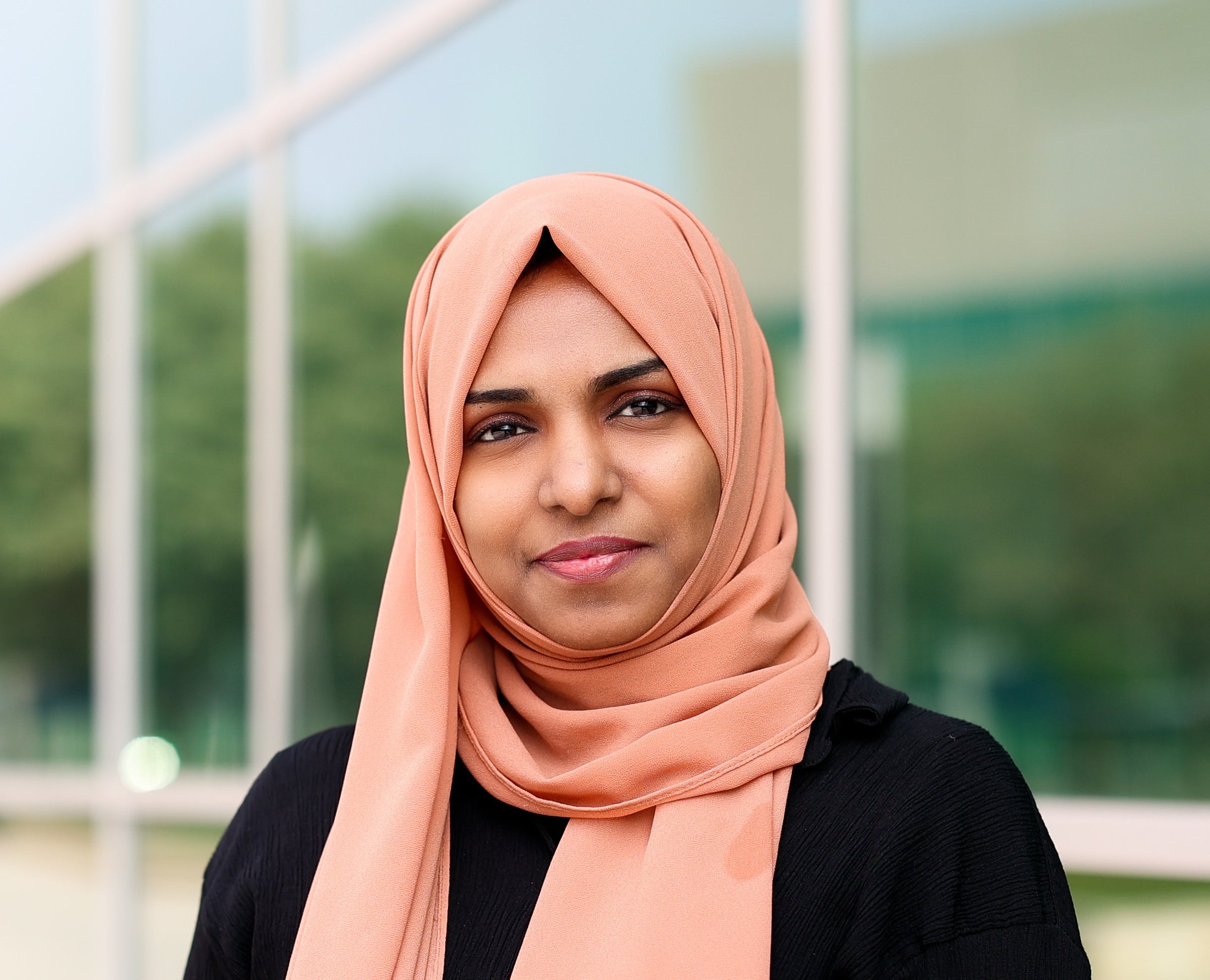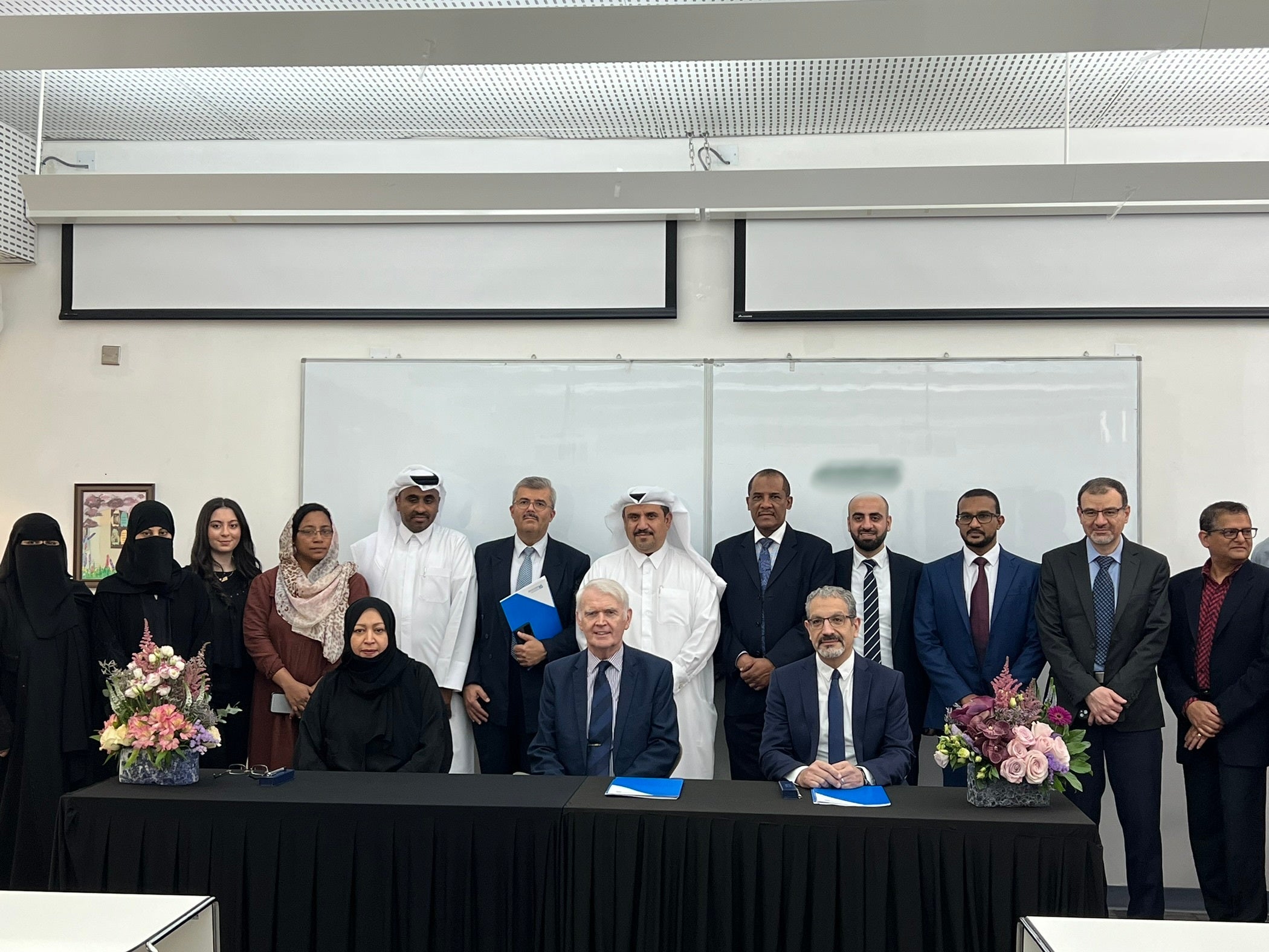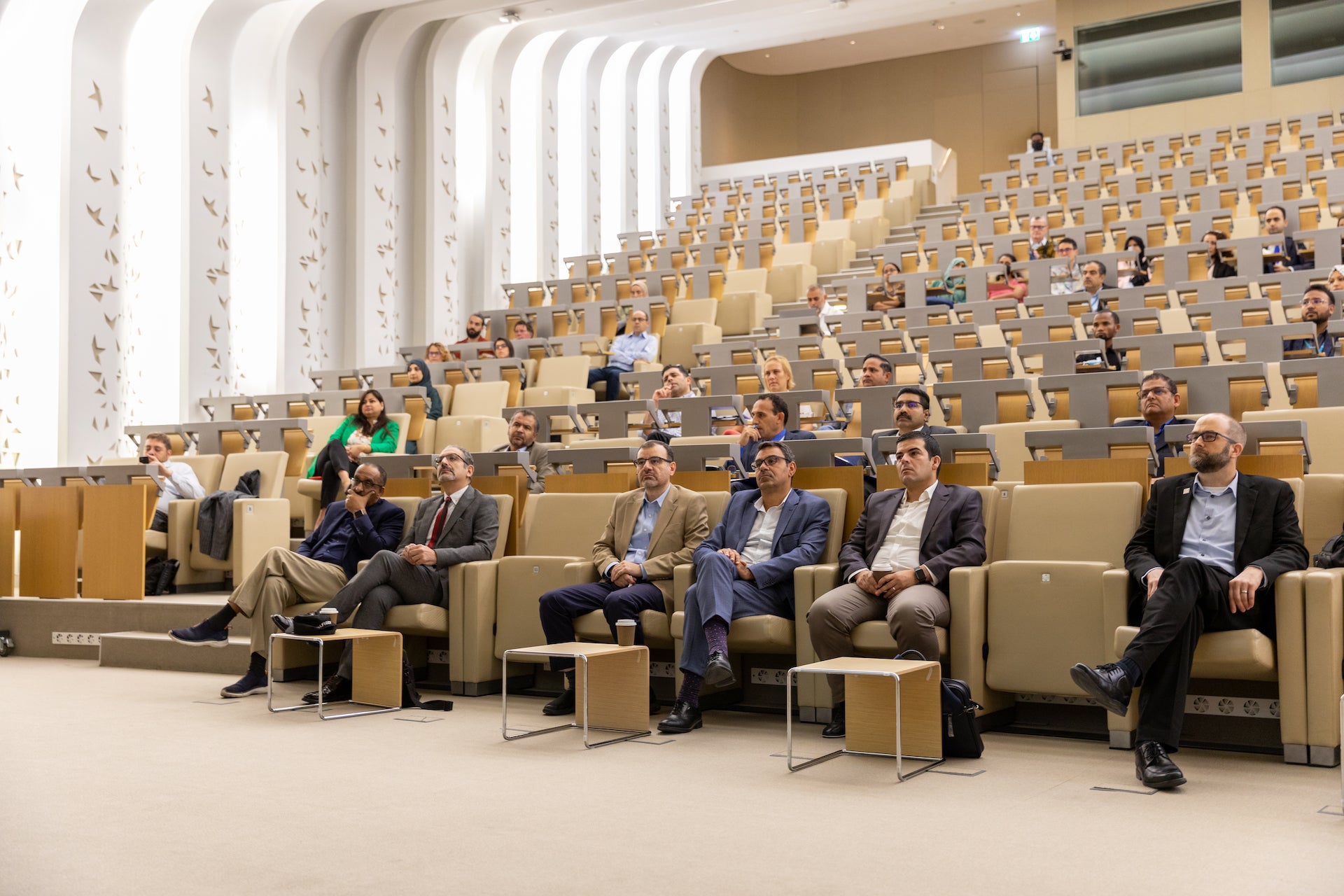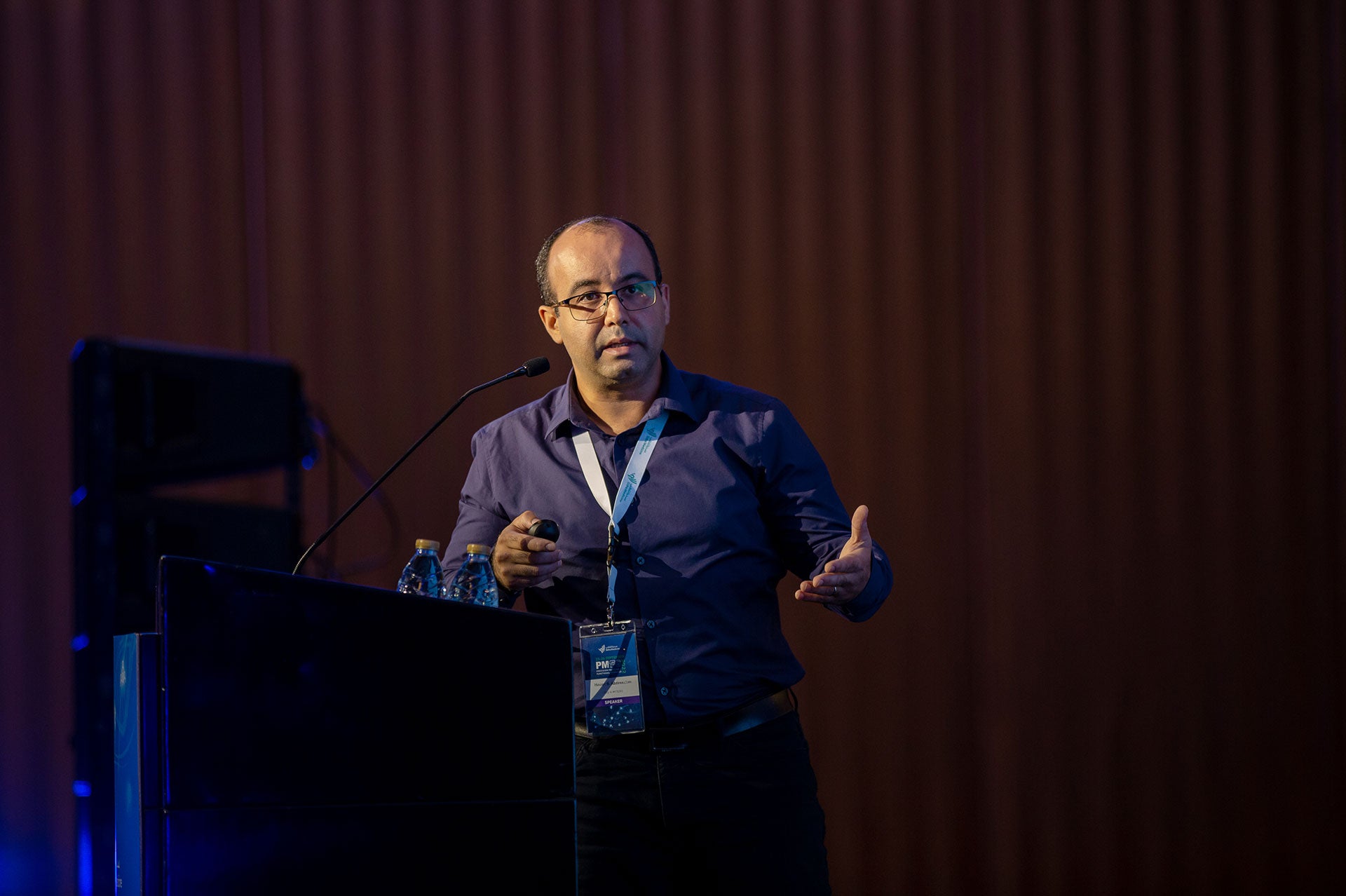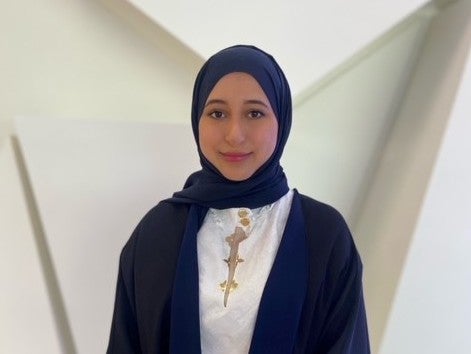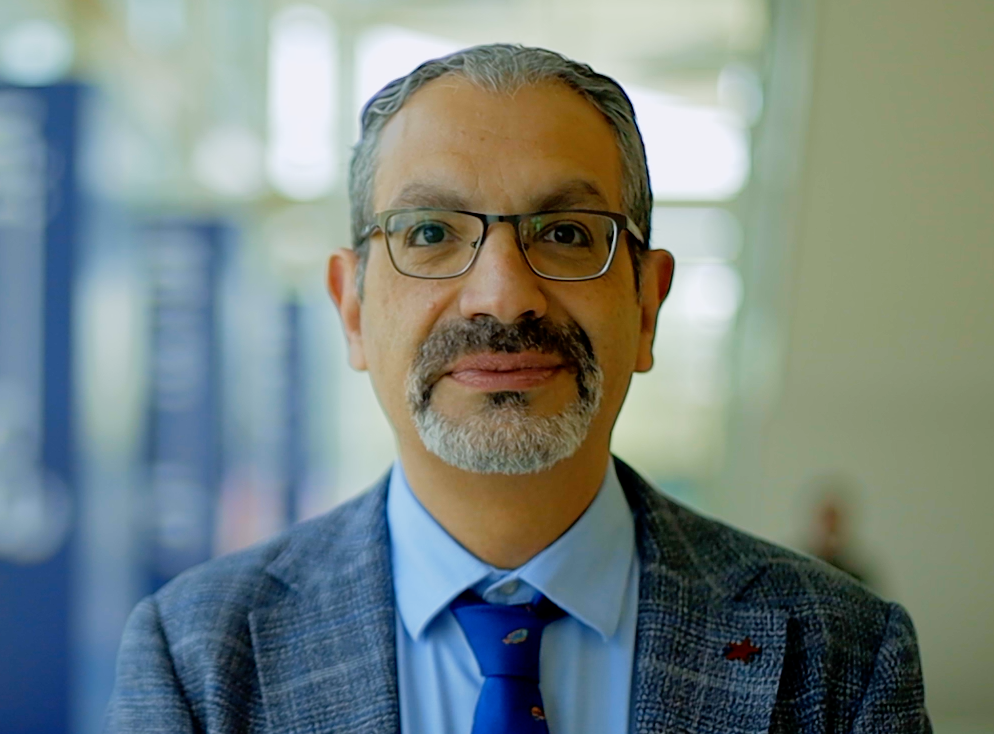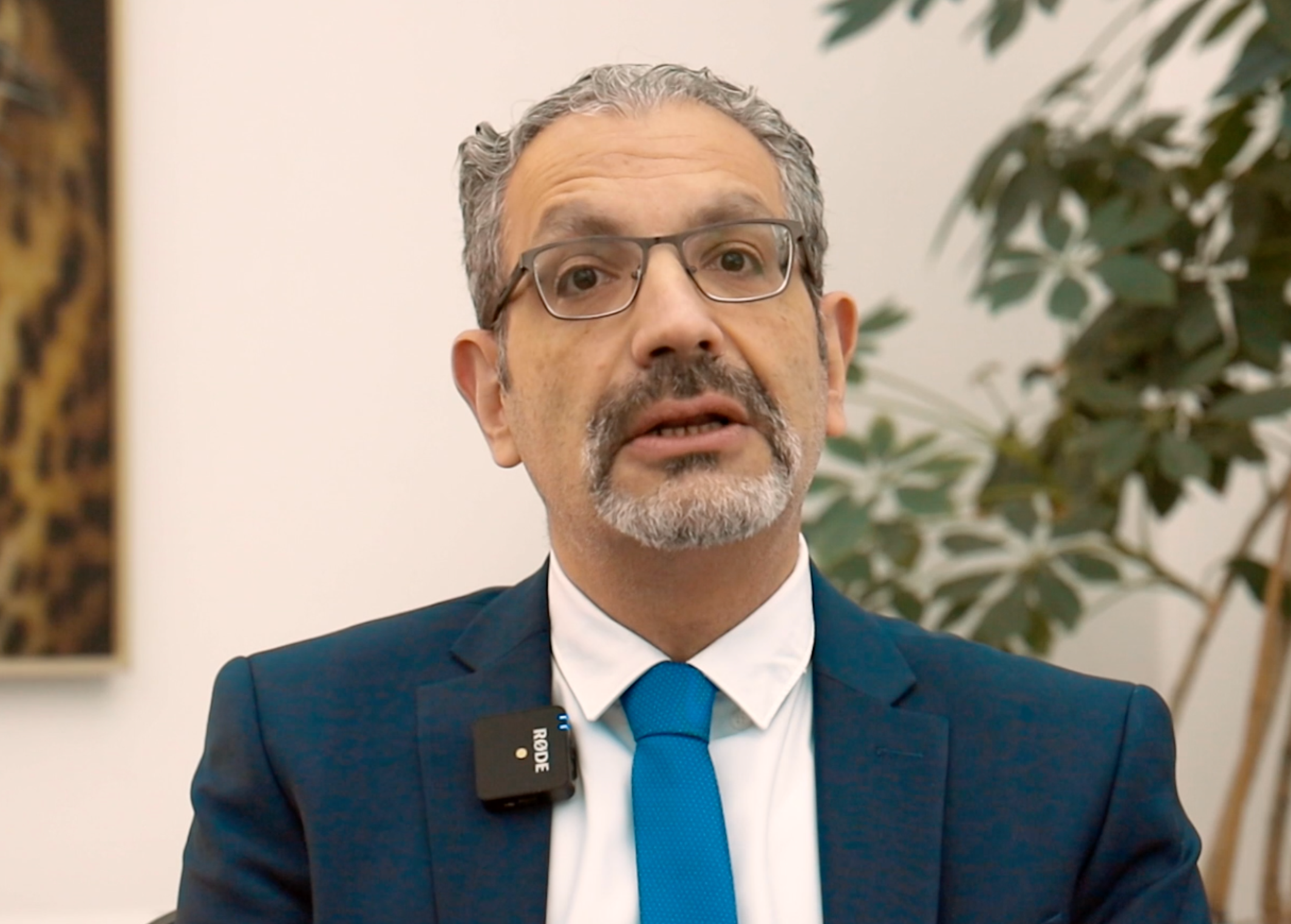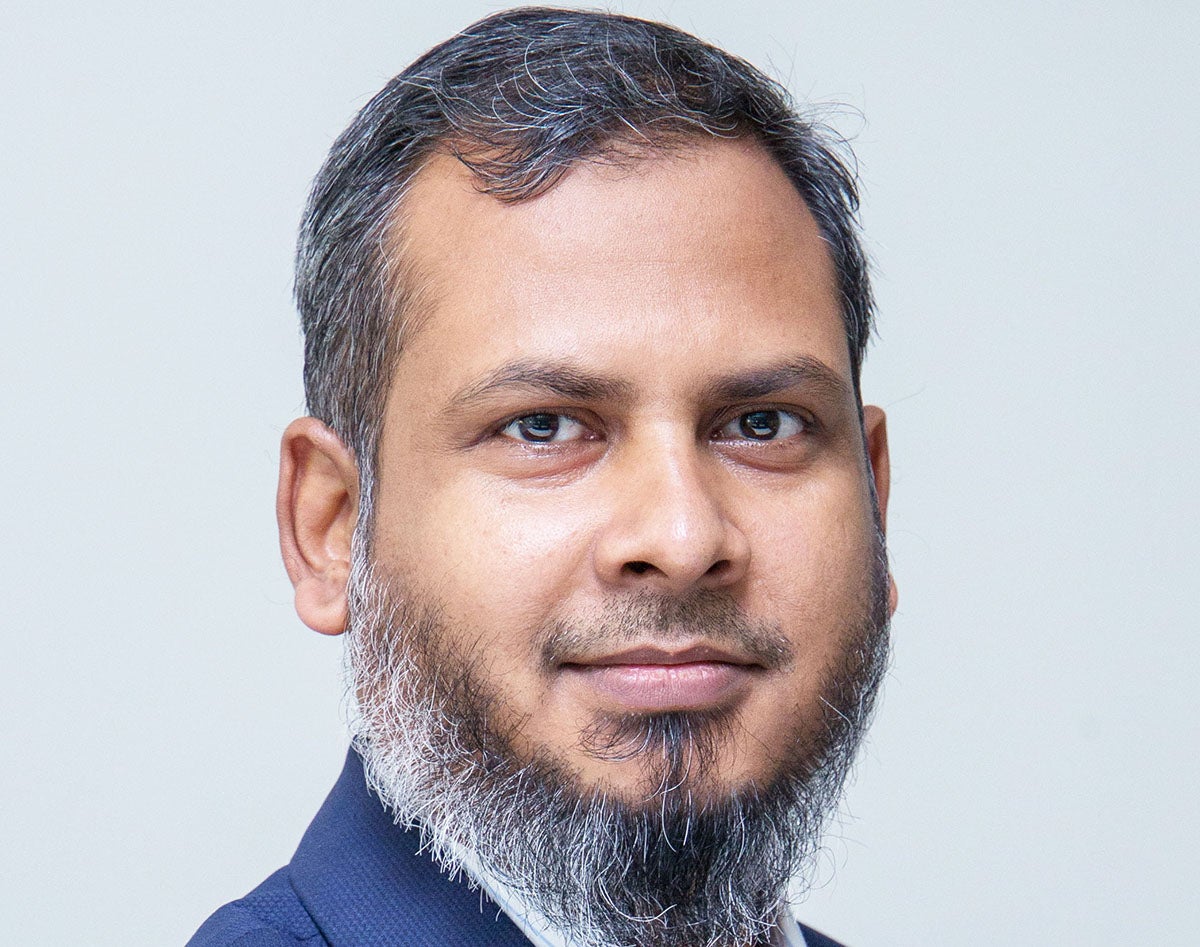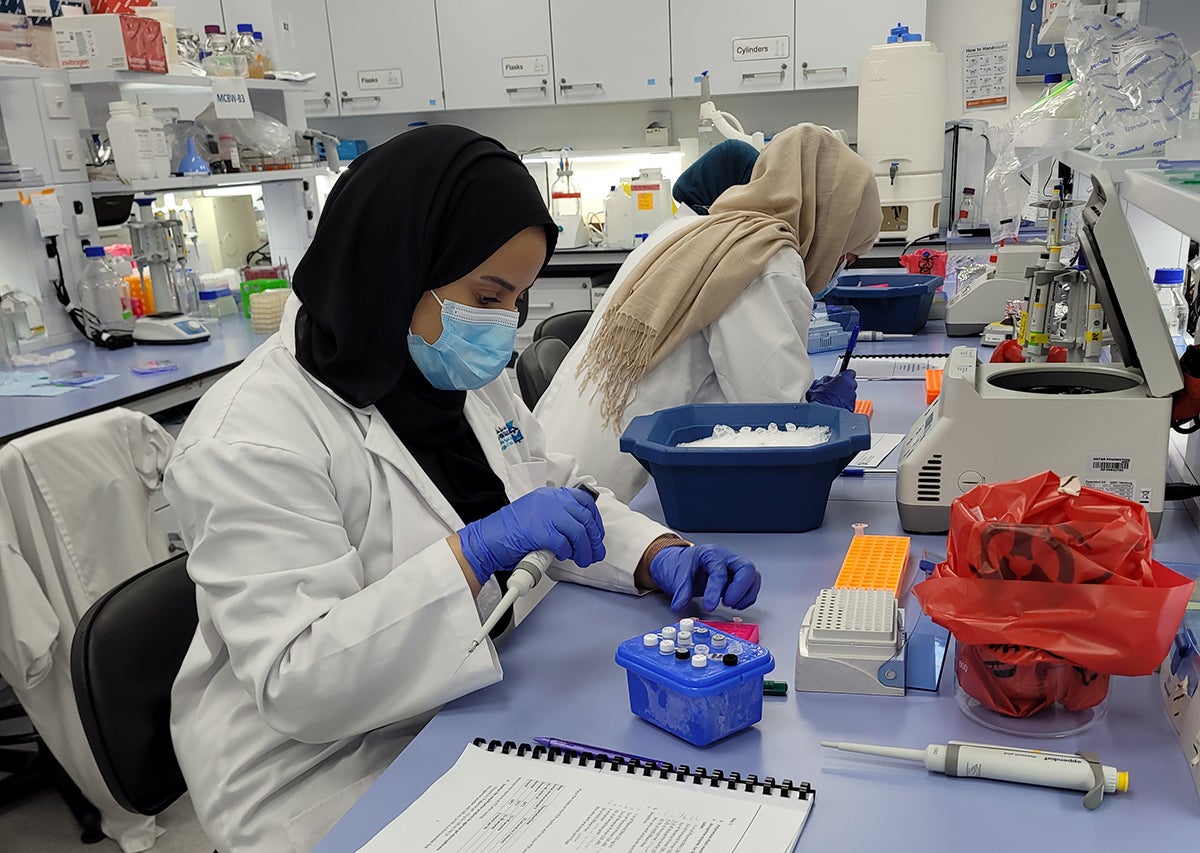
HBKU College of Health and Life Sciences and Equine Veterinary Medical Center Sign MoU

The College of Health and Life Sciences (CHLS) at Hamad Bin Khalifa University (HBKU) has signed a Memorandum of Understanding (MoU) with Equine Veterinary Medical Center (EVMC), which will see the two entities collaborate in areas of research and graduate education.
Dr. Edward Stuenkel, founding dean of CHLS, and Dr. Jessica Johnson, acting director of EVMC, signed the MoU. The agreement aims to extend the productive interactions and research of health and life sciences, enhance biomedical research expertise and expand veterinary competencies.
Commenting on the collaboration, Dr. Stuenkel said: “Our collaboration with EVMC is an opportunity to expand the research performed at the systems and stem cell levels - of the life sciences performed on equines. Our shared objectives will allow for CHLS graduate students to learn about the application of state-of-the-art medical treatments and genomic science advances in veterinary equine care.
“This MOU will also provide EVMC research scientists with opportunities to engage in CHLS educational activities, and opens doors for the participation of CHLS graduate students in next generation veterinary science projects.”
As part of the MoU, HBKU has established, through its graduate programs, adjunct academic appointments to academically qualified and research-orientated veterinarians at EVMC.
In addition, CHLS faculty, scientists and researchers as well as EVMC staff will share access to facilities and the use of laboratory equipment on the premises of both entities.
Dr. Jessica Johnson, acting director of EVMC, said: “Our partnership with HBKU’s CHLS will enable us to contribute effectively to and benefit from a mutual pool of expertise, know-how, and amenities. It marks the beginning of a long-term relationship that will undoubtedly help us achieve our intended objectives and interests.”
The agreement forms part of HBKU’s commitment to pursuing local and international collaborations to promote education and knowledge transfer, and make research opportunities more widely accessible.
Related News
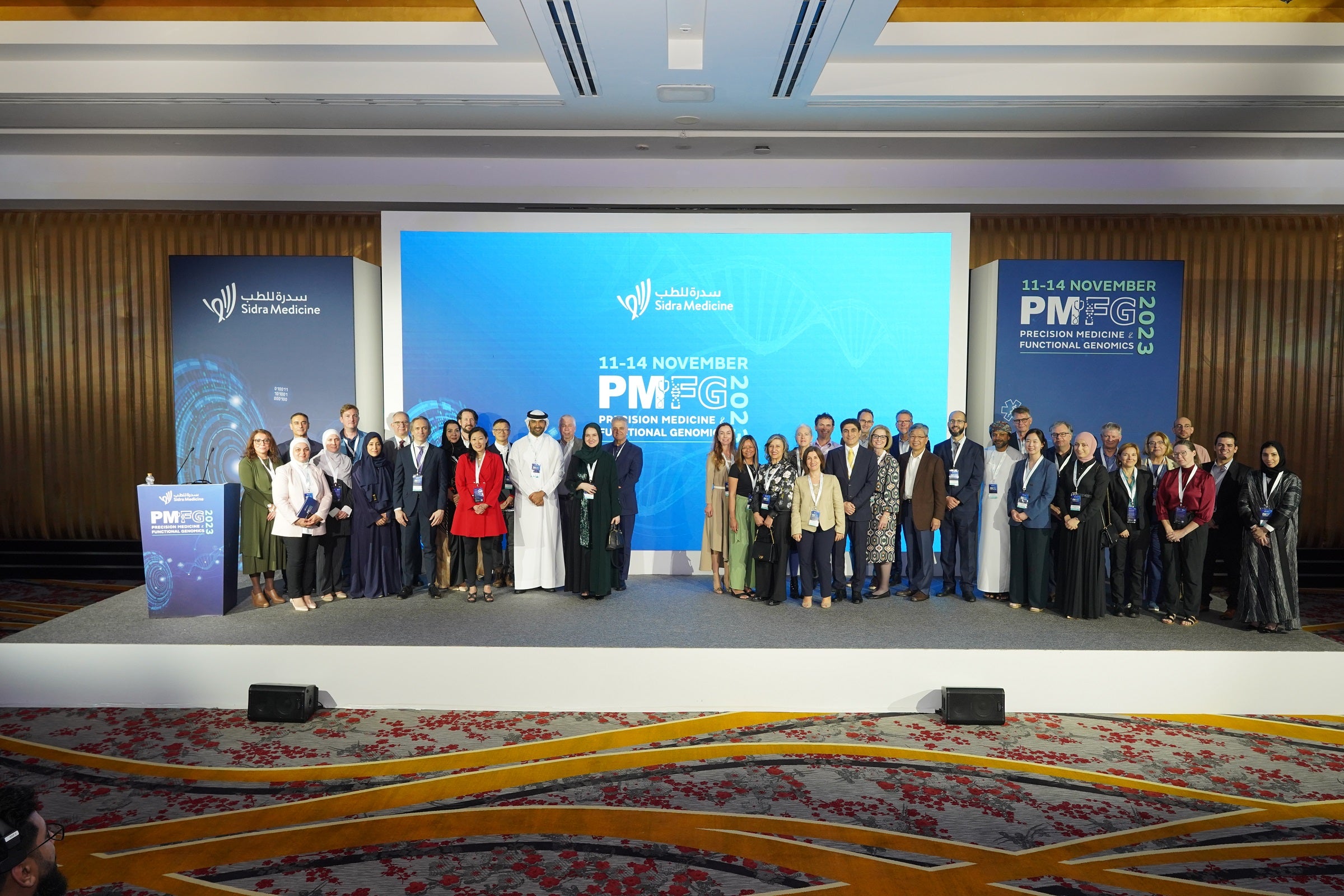
HBKU Participates at Sidra Medicine’s 9th Precision Medicine and Functional Genomics Conference
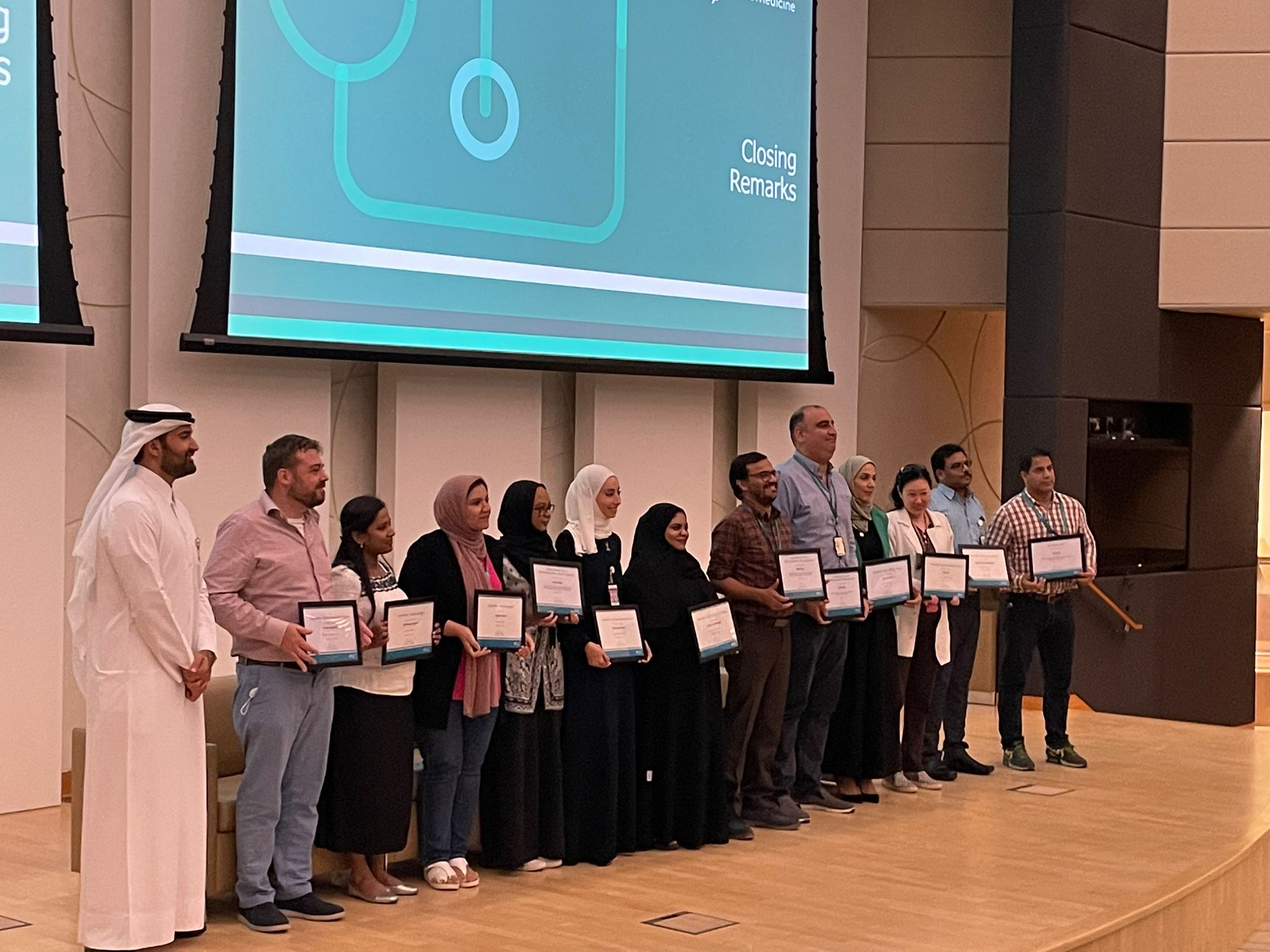
Doctorate Student at HBKU’s College of Health and Life Sciences Receives Specialist Author Award

HBKU Participates at Sidra Medicine’s 9th Precision Medicine and Functional Genomics Conference

Doctorate Student at HBKU’s College of Health and Life Sciences Receives Specialist Author Award

HBKU Participates at Sidra Medicine’s 9th Precision Medicine and Functional Genomics Conference

Doctorate Student at HBKU’s College of Health and Life Sciences Receives Specialist Author Award

HBKU Participates at Sidra Medicine’s 9th Precision Medicine and Functional Genomics Conference

Doctorate Student at HBKU’s College of Health and Life Sciences Receives Specialist Author Award

HBKU Participates at Sidra Medicine’s 9th Precision Medicine and Functional Genomics Conference

Doctorate Student at HBKU’s College of Health and Life Sciences Receives Specialist Author Award

HBKU Participates at Sidra Medicine’s 9th Precision Medicine and Functional Genomics Conference

Doctorate Student at HBKU’s College of Health and Life Sciences Receives Specialist Author Award

HBKU Participates at Sidra Medicine’s 9th Precision Medicine and Functional Genomics Conference

Doctorate Student at HBKU’s College of Health and Life Sciences Receives Specialist Author Award

HBKU Participates at Sidra Medicine’s 9th Precision Medicine and Functional Genomics Conference

Doctorate Student at HBKU’s College of Health and Life Sciences Receives Specialist Author Award

HBKU Participates at Sidra Medicine’s 9th Precision Medicine and Functional Genomics Conference

Doctorate Student at HBKU’s College of Health and Life Sciences Receives Specialist Author Award

HBKU Participates at Sidra Medicine’s 9th Precision Medicine and Functional Genomics Conference

Doctorate Student at HBKU’s College of Health and Life Sciences Receives Specialist Author Award

HBKU Participates at Sidra Medicine’s 9th Precision Medicine and Functional Genomics Conference

Doctorate Student at HBKU’s College of Health and Life Sciences Receives Specialist Author Award

HBKU Participates at Sidra Medicine’s 9th Precision Medicine and Functional Genomics Conference

Doctorate Student at HBKU’s College of Health and Life Sciences Receives Specialist Author Award

HBKU Participates at Sidra Medicine’s 9th Precision Medicine and Functional Genomics Conference

Doctorate Student at HBKU’s College of Health and Life Sciences Receives Specialist Author Award

HBKU Participates at Sidra Medicine’s 9th Precision Medicine and Functional Genomics Conference

Doctorate Student at HBKU’s College of Health and Life Sciences Receives Specialist Author Award

HBKU Participates at Sidra Medicine’s 9th Precision Medicine and Functional Genomics Conference

Doctorate Student at HBKU’s College of Health and Life Sciences Receives Specialist Author Award

HBKU Participates at Sidra Medicine’s 9th Precision Medicine and Functional Genomics Conference

Doctorate Student at HBKU’s College of Health and Life Sciences Receives Specialist Author Award

HBKU Participates at Sidra Medicine’s 9th Precision Medicine and Functional Genomics Conference

Doctorate Student at HBKU’s College of Health and Life Sciences Receives Specialist Author Award

HBKU Participates at Sidra Medicine’s 9th Precision Medicine and Functional Genomics Conference

Doctorate Student at HBKU’s College of Health and Life Sciences Receives Specialist Author Award

HBKU Participates at Sidra Medicine’s 9th Precision Medicine and Functional Genomics Conference

Doctorate Student at HBKU’s College of Health and Life Sciences Receives Specialist Author Award

HBKU Participates at Sidra Medicine’s 9th Precision Medicine and Functional Genomics Conference

Doctorate Student at HBKU’s College of Health and Life Sciences Receives Specialist Author Award

HBKU Participates at Sidra Medicine’s 9th Precision Medicine and Functional Genomics Conference

Doctorate Student at HBKU’s College of Health and Life Sciences Receives Specialist Author Award

HBKU Participates at Sidra Medicine’s 9th Precision Medicine and Functional Genomics Conference

Doctorate Student at HBKU’s College of Health and Life Sciences Receives Specialist Author Award

HBKU Participates at Sidra Medicine’s 9th Precision Medicine and Functional Genomics Conference

Doctorate Student at HBKU’s College of Health and Life Sciences Receives Specialist Author Award

HBKU Participates at Sidra Medicine’s 9th Precision Medicine and Functional Genomics Conference

Doctorate Student at HBKU’s College of Health and Life Sciences Receives Specialist Author Award

HBKU Participates at Sidra Medicine’s 9th Precision Medicine and Functional Genomics Conference

Doctorate Student at HBKU’s College of Health and Life Sciences Receives Specialist Author Award

HBKU Participates at Sidra Medicine’s 9th Precision Medicine and Functional Genomics Conference

Doctorate Student at HBKU’s College of Health and Life Sciences Receives Specialist Author Award

HBKU Participates at Sidra Medicine’s 9th Precision Medicine and Functional Genomics Conference

Doctorate Student at HBKU’s College of Health and Life Sciences Receives Specialist Author Award

HBKU Participates at Sidra Medicine’s 9th Precision Medicine and Functional Genomics Conference

Doctorate Student at HBKU’s College of Health and Life Sciences Receives Specialist Author Award

HBKU Participates at Sidra Medicine’s 9th Precision Medicine and Functional Genomics Conference

Doctorate Student at HBKU’s College of Health and Life Sciences Receives Specialist Author Award

HBKU Participates at Sidra Medicine’s 9th Precision Medicine and Functional Genomics Conference

Doctorate Student at HBKU’s College of Health and Life Sciences Receives Specialist Author Award

HBKU Participates at Sidra Medicine’s 9th Precision Medicine and Functional Genomics Conference

Doctorate Student at HBKU’s College of Health and Life Sciences Receives Specialist Author Award

HBKU Participates at Sidra Medicine’s 9th Precision Medicine and Functional Genomics Conference

Doctorate Student at HBKU’s College of Health and Life Sciences Receives Specialist Author Award

HBKU Participates at Sidra Medicine’s 9th Precision Medicine and Functional Genomics Conference

Doctorate Student at HBKU’s College of Health and Life Sciences Receives Specialist Author Award

HBKU Participates at Sidra Medicine’s 9th Precision Medicine and Functional Genomics Conference

Doctorate Student at HBKU’s College of Health and Life Sciences Receives Specialist Author Award

HBKU Participates at Sidra Medicine’s 9th Precision Medicine and Functional Genomics Conference

Doctorate Student at HBKU’s College of Health and Life Sciences Receives Specialist Author Award

HBKU Participates at Sidra Medicine’s 9th Precision Medicine and Functional Genomics Conference

Doctorate Student at HBKU’s College of Health and Life Sciences Receives Specialist Author Award

HBKU Participates at Sidra Medicine’s 9th Precision Medicine and Functional Genomics Conference

Doctorate Student at HBKU’s College of Health and Life Sciences Receives Specialist Author Award

HBKU Participates at Sidra Medicine’s 9th Precision Medicine and Functional Genomics Conference

Doctorate Student at HBKU’s College of Health and Life Sciences Receives Specialist Author Award

HBKU Participates at Sidra Medicine’s 9th Precision Medicine and Functional Genomics Conference

Doctorate Student at HBKU’s College of Health and Life Sciences Receives Specialist Author Award

HBKU Participates at Sidra Medicine’s 9th Precision Medicine and Functional Genomics Conference






